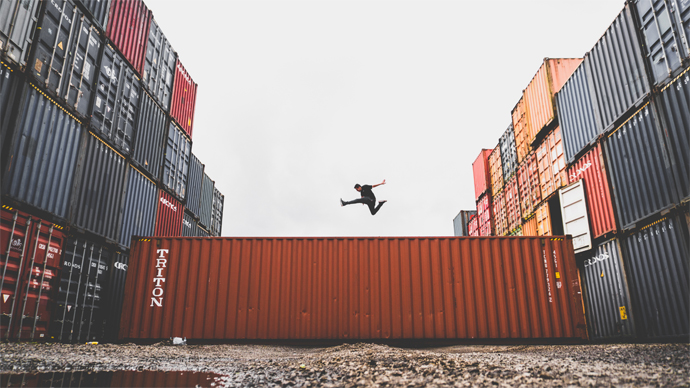Sustainability Activities in the Logistics Sector
← Back
Sustainability in the logistics sector is one of the important issues that determine the current challenges of the supply chain. As is well known, achieving efficiency in the supply chain mainly involves improving customer service and reducing costs.
Sustainability in the logistics sector is one of the important issues that determine the current challenges of the supply chain. As is well known, achieving efficiency in the supply chain mainly involves improving customer service and reducing costs. To do this, distribution and transportation activities, which are part of the last stage of the chain, face risks directly related to the speed of deliveries requested by customers and the impact of transportation on the environment.
Both require a focus on sustainability, which considers optimal design of routes to reduce polluting emissions and a logistics system that encourages shorter journeys. Consumers and companies from all sectors are increasingly developing environmental awareness, which they also demand from their direct suppliers and put into practice in their activities and daily lives.
What is Sustainable Logistics?
Carbon dioxide (CO2) in the atmosphere has reached an alarming level, and while there are many documented reasons for this, the growth of e-commerce is likely to contribute to the environmental decline. Sustainable logistics aims to reduce the environmental threat from industrial and commercial activities by changing the way supply chains serve customers around the world.
The challenge facing the global logistics industry lies in finding ways to reduce the environmental impact of transporting goods to billions of customers. This means increasing the efficiency of e-commerce supply chains to ensure that services are delivered in the most environmentally friendly way, i.e. sustainable logistics.
Sustainable Logistics Activities
Environmental regulations are becoming more stringent and logistics companies have to make their duties more and more sustainable in order to comply with these regulations and improve their social responsibility towards consumers. Sustainability is very important in the logistics sector.
Sustainability Practices in the Logistics Sector
- Switch to more efficient and environmentally friendly vehicles. Even if the use of vehicles that are not suitable for logistics is restricted by urban traffic regulations, the measures taken against this are insufficient. There are less polluting transportation alternatives such as electric and hybrid cars that could be the key to tomorrow's logistics. This means we have to invest in fleet renewal that not all companies can afford. Seeking government initiatives or asking for loans designed to meet this need seem like good options to start the path to sustainability practices in the logistics industry.
- The first step towards achieving goals for sustainability in the logistics industry is to have software that helps us balance loads and calculate our carbon footprint. Knowing how much pollution our company's logistics efforts create is the first step towards achieving sustainable goals; There is software for calculating a fleet's carbon footprint, making it easier to make decisions when planning shipping routes and loads to make them more efficient and sustainable.
- Green logistics should be supported. Logistics companies can transform systems and processes to design innovative strategies that care about the environment, measure and minimize the impact of their operations. Green logistics practices are very important at this stage. The main purpose of the green logistics philosophy is to increase transportation efficiency by reducing costs and its impact on the environment.
- Prefer renewable energies. As energy sources, wind and solar energy have less impact on the environment and reduce the use of fossil fuels and electricity. This is a global effort adopted by industries across all sectors aiming to achieve sustainability practices in the logistics sector in their operations. The Fraunhofer Institute for Solar Energy Systems in Germany conducted research they deemed appropriate for the logistics industry to install solar panels on commercial vehicles in order to reduce hydrocarbon use, CO2 emissions and transportation costs in general.
- Follow the Reduce, Recycle, Reuse and Recover strategy. Aiming sustainability in the logistics sector, both for the production model and for the supply chain, is a significant challenge to be faced at the moment. This strategy optimizes the use of resources and gets rid of what is not needed, reusing whenever possible. And because warehouse management is done right, it reclaims resources to avoid wasting them. In addition to contributing to the improvement of the environment, it also creates savings that increase the profitability of the distribution process.

 HONEST
HONEST Eğitim Portalı
Eğitim Portalı Müşteri Portalı
Müşteri Portalı Bize Ulaşın
Bize Ulaşın